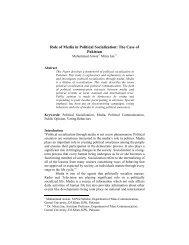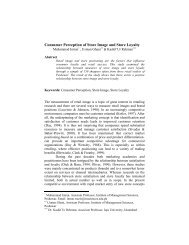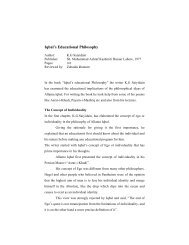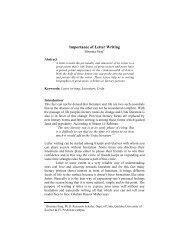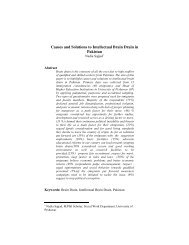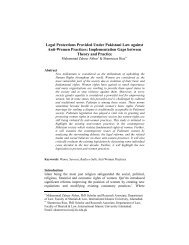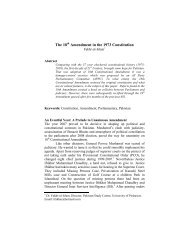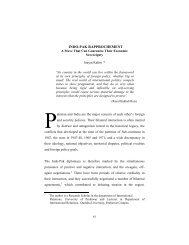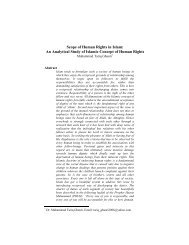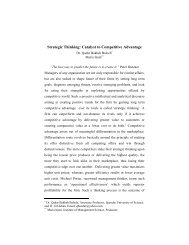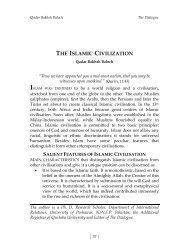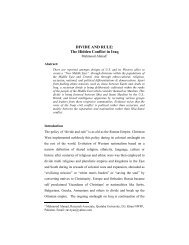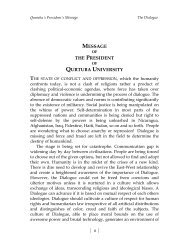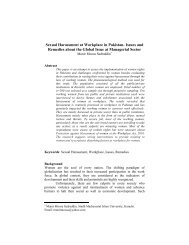COLD WAR POLITICS OF SUPERPOWERS IN SOUTH ASIA Abstract
COLD WAR POLITICS OF SUPERPOWERS IN SOUTH ASIA Abstract
COLD WAR POLITICS OF SUPERPOWERS IN SOUTH ASIA Abstract
You also want an ePaper? Increase the reach of your titles
YUMPU automatically turns print PDFs into web optimized ePapers that Google loves.
the Baghdad Pact (later known as CENTO 22 ) in 1954-55 led to a close<br />
military relationship with the US and Washington had a chance to establish<br />
military bases in order to protect the oil areas of the Middle East. 23 In 1959,<br />
Pakistan also signed a bilateral “Agreement of Co-operation” with the United<br />
States and Pakistan was associated with the US through not one, but four<br />
mutual security arrangements. 24 The New York Times stated that discussions<br />
on a military alliance were to begin on the condition that Pakistan “was<br />
willing to consider an exchange of air bases for military equipment.” 25<br />
Moreover, the Pakistan military elites, especially General Ayub Khan,<br />
constantly pressed for larger allotments of arms and economic aid. His<br />
arguments were supported by many US officials who, convinced that Pakistan<br />
had adopted a firm anti-Communist policy, argued that it could only play a<br />
role in regional defence if it were given more arms than originally planned. 26<br />
Policy makers seemingly believed that Pakistan assessed the Soviet military<br />
pressure as a significant danger, which made cooperation with the West<br />
desirable. In fact, some important officials apparently thought that Pakistan<br />
regarded the Soviet threat as a close second to that posed by India. Thus,<br />
Pakistan did become a member of Western military pacts and was sometimes<br />
regarded as ‘America’s most allied ally in Asia’ and managed the problem of<br />
survival from the implacable hostility of India. Political analyst Nirad<br />
Chaudhuri quite logically argued that “India held the pistol at the head of<br />
Pakistan, until, in 1954, the American alliance delivered the country from the<br />
nightmare.” 27 Under the influence of the alliance policy, Pakistan felt it had<br />
clearly come off better than India in a major international episode, and it was<br />
sweet to savor. 28<br />
Therefore, military alliances with Pakistan became a strategic necessity and<br />
the US acquired an image in India “as a friend of Pakistan and opposed to<br />
India.” 29 Some Indian scholars argued that the US attitude towards India has<br />
allowed India to believe that the US patronisation of Pakistan meant denial of<br />
75



